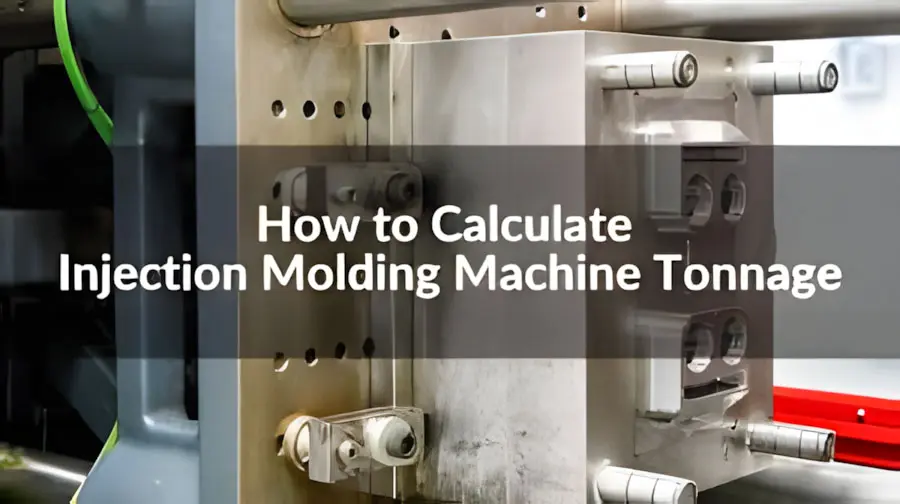Plastic shrinkage is the percentage difference between the size of the plastic parts at the molding temperature and the size after they are taken out of the mold and cooled to room temperature. It reflects the extent to which plastic parts are reduced in size after they are removed from the mold and cooled. The factors affecting the plastic shrinkage rate are plastic varieties, molding conditions, mold structure, and so on. The shrinkage rate of plastics is also closely related to the shape of the plastic parts, the complexity of the internal structure, and whether there are embedded parts. The shrinkage rate of different polymer materials is different. In the last article, we talked about how to calculate the plastic shrinkage rate. Today we will continue to introduce the factors that affect the plastic shrinkage rate.
The shape of plastic parts
Generally speaking, the cooling time of the thick wall is longer and the shrinkage rate is larger. In general, when the size of plastic melt flow direction L is greatly different from that of W, which is perpendicular to the melt flow direction, the shrinkage rate is also greatly different. From the perspective of melt flow distance, the pressure loss away from the sprue is large, and the shrinkage rate there is larger than that at the sprue. Because the shape such as reinforcing rib, hole, boss, and sculpture has shrinkage resistance, the shrinkage rate of these parts is smaller.
The mold structure
Gate form affects shrinkage. Before the end of the small sprue holding pressure, the sprue solidifies and increases the shrinkage rate of the plastic parts. The cooling circuit structure in the injection mold is also a key point in mold design. Improper cooling circuit design will cause shrinkage differences due to the uneven temperature of the plastic parts and lead to oversize or deformation of the plastic parts. The effect of die temperature distribution on shrinkage is more obvious.
Mold dimensions and tolerances
In addition to calculating the machining dimensions of the mold cavity and core by formula D=M(1+S), machining tolerances should also be considered. The processing tolerance of general mold is 1/3 of the tolerance of plastic parts, but due to the plastic shrinkage range and stability being different, first of all, it must be reasonable to determine the dimensional tolerance of plastic parts formed by different plastics. That is to say, the dimensional tolerance of plastic forming parts with a larger shrinkage range or worse shrinkage stability should be larger, otherwise, a large number of out-of-tolerance waste products may appear。
Many countries have formulated national or industrial standards for the dimensional tolerance of plastic parts, but there is few corresponding mold cavity dimensional tolerance. The German national standard has formulated the dimensional tolerance standard DIN16901 for plastic parts and the corresponding dimensional tolerance standard DIN16749 for mold cavities. The following are the molding temperature, mold temperature, and shrinkage rate of some common plastics:
| Material | Density [g/cm] | Average specific heat [KJ/(kg x K)] | processing temperature [℃] | Mold temperature [℃] | Shrinking rate[%] |
| PS | 1.05 | 1.3 | 180-280 | 10 | 0.3-0.6 |
| SAN | 1.08 | 1.3 | 180-270 | 50-80 | 0.5-0.7 |
| ABS | 1.06 | 1.4 | 210-275 | 50-90 | 0.4-0.7 |
| ASA | 1.07 | 1.3 | 230-260 | 40-90 | 0.4-0.6 |
| LDPE | 0.92 | 2.0-2.1 | 160-260 | 50-70 | 1.5-5.0 |
| HDPE | 0.954 | 2.3-2.5 | 260-300 | 30-70 | 1.5-3.0 |
| PP | 0.915 | 0.84-2.5 | 250-270 | 50-75 | 1.0-2.5 |
| PPGR | 1.15 | 1.1-1.35 | 260-280 | 50-80 | 0.5-1.2 |
| PMP | 0.83 | 280-310 | 70 | 1.5-3.0 | |
| PVC-soft | 1.38 | 0.85 | 170-200 | 15-50 | >0.5 |
| PVC-rigid | 1.38 | 0.83-0.92 | 180-210 | 30-50 | 0.5 |
| PVDF | 1.72-1.78 | 250-270 | 90-100 | 3.0-6.0 | |
| PTFE | 2.12-2.17 | 0.12 | 320-360 | 200-230 | 3.5-6.0 |
| POM | 1.42 | 1.47-1.5 | 200-210 | >90 | 1.9-2.3 |
| PPO | 1.06 | 1.45 | 250-300 | 80-100 | 0.5-0.7 |
| PPO-GR | 1.27 | 1.3 | 280-300 | 80-100 | <0.7 |
| CA | 1.27-1.3 | 1.3-1.7 | 180-320 | 50-80 | 0.5 |
| CAB | 1.17-1.22 | 1.3-1.7 | 180-230 | 50-80 | 0.5 |
| CP | 1.19-1.23 | 1.7 | 180-230 | 50-80 | 0.5 |
| PC | 1.2 | 1.3 | 280-320 | 80-100 | 0.8 |
| PC-GR | 1.42 | 1.1 | 300-330 | 100-120 | 0.15-0.55 |
| PET | 1.37 | 260-290 | 140 | 1.2-2.0 | |
| PA 6 | 1.14 | 1.8 | 240-260 | 70-120 | 0.5-2.2 |





